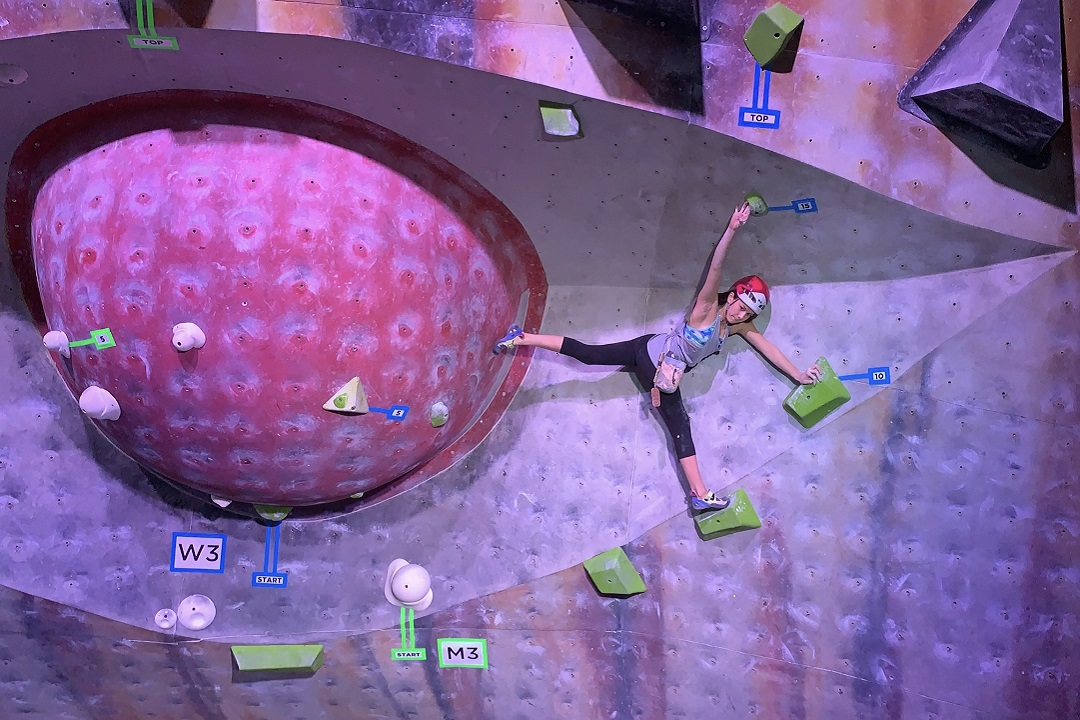The anticipation for the XXXII Olympic Summer Games has been pushed to five years from its traditional four due to COVID, but for rock climbers, the suspense started in August 2016, when the International Olympic Committee formally announced climbing would join the list of medal sports along with surfing, skateboarding, karate, and baseball/softball.
In its Olympic debut, 40 climbers will compete in three disciplines — lead climbing, bouldering, and speed climbing — with a combined score determining six medalists (a single set for men and women). After a rockfall of criticism, the committee announced in December 2020 that it would double the number of medals in 2024, with speed climbing becoming a separate event.
Here’s how each discipline works:
Speed – Two athletes compete side-by-side on a 15-meter, standard speed course, which hasn’t changed in almost 15 years. The faster of the two advances within a tournament-style bracket until a single victor emerges.
Bouldering – Climbers get four minutes to ascend each of four sequences. Top scores are awarded to those who reach the top hold with both hands. Additional scoring factors include the number of attempts and zone holds (partial completion). Unlike speed climbing, problems are sight unseen until the climber’s turn.
Lead – Competitors get a single attempt to climb as high as they can on a lead route without falling. Each handhold is worth one point. Athletes who tie for the highest hold are sorted by time. Like bouldering, climbers are sequestered prior to their turn.
The combined score is a simple multiplication problem. If you were first in speed, second in bouldering, and third in lead, your score would be 1 x 2 x 3 = 6. The lower the combined score, the higher the ranking.
USA Climbing
Long before reaching the ranks of Olympians, competitive climbers in the US compete at their local gym, or at higher levels in USA Climbing’s youth, collegiate, or elite series. The organization is the official overseer of competitive climbing in the country and hosts championships at the regional, divisional, and national levels.
Dissimilar to this year’s Olympics, the three disciplines are approached separately, with many climbers choosing one or two of the three. Climbers like Julia de la Paz. Julia is a stand-out rock climber who has spent more than half of her life competing. She’s 15.
“To be a competitive climber, you want to have a good level of strength and technique, but it’s a lot of mental game, too,” de la Paz said. “To win, it takes a lot of training and also a bit of luck. You want to get routes that are just your style. But you also want to train so that style is not so important.”
Having trained and competed in bouldering and lead, de la Paz is looking forward to adding speed climbing to her competitive repertoire.
“I’m hoping that by nationals I can compete in speed climbing for the first time. I try to train one to two times a month, since the closest speed route to us is four to five hours away.”
De la Paz has her sights set on the International Federation of Sport Climbing (IFSC) Youth World Championships. To qualify, she must place in the top three at nationals in her class. While COVID canceled the lead championships in 2020, she competed in the bouldering nationals, where she placed 10th.
“I’ve been fairly consistently going to nationals since I was nine,” she said. “As others get more experience, you have to keep up if you want to compete well. I train three days a week with my team and one other day. Recently, I’ve started working with a personal trainer, too.”
When de la Paz isn’t training or competing, she’s still climbing and sending 5.13s at Jackson Falls and Red River Gorge. Whether in the gym or outside, you’ll spot her on some heinous crimp-fests in her signature grey helmet, which, she jokes, is how people recognize her.
“Climbing is my entire world,” she said. “I’m not perfect at it. I make really silly mistakes, and there’s tons of room for improvement.”
Nevertheless, she’s among St. Louis’ elite climbers and credits her coaches.
“My coaches are the reason I am where I am today. Without them, I would never do anything I didn’t want to do. They forced me to climb on overhung steep stuff and slopers. Now, I’m not too terrible at it.”
She most certainly is not.
Must See TV
You can watch rock climbers go for gold for the first time at the Summer Olympic Games from August 3-6. While the official broadcast schedule has not yet been announced, NBC, NBC Sports, and The Olympic Channel will all air ongoing coverage. Check your local listings for details closer to the Games.
Author: Corrie Hendrix Gambill is a regular contributor to Terrain Magazine.
Top Image: Julia de la Paz at the 2019 So iLL Showdown. (Mike de la Paz)


Leave A Comment